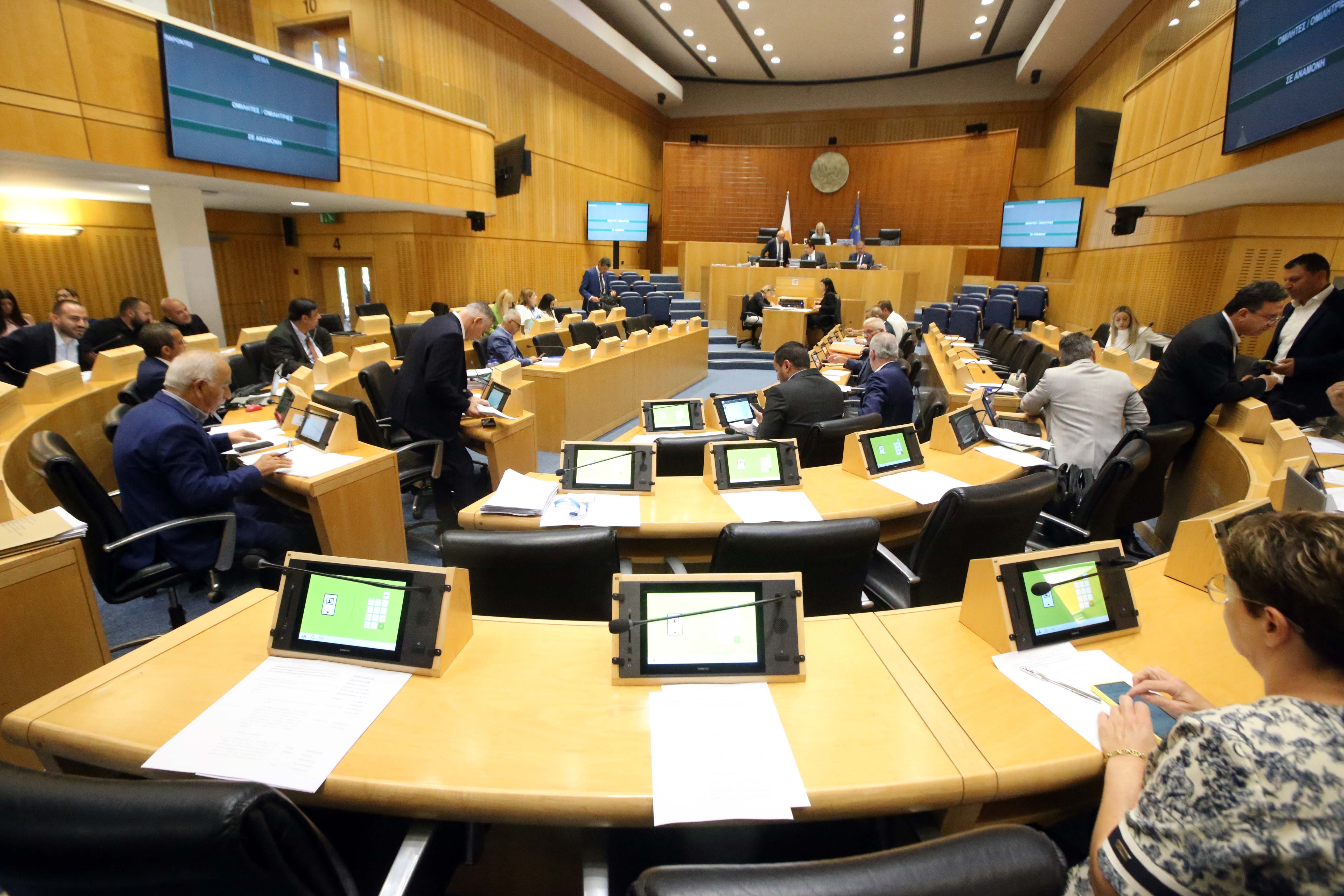Parliament on Thursday voted into law a bill which allows for the European Union’s visa information system (VIS) to be implemented and operated in Cyprus, bringing the island a step closer to member of the Schengen zone.
In total, 27 MPs voted in favour, while 10 Akel MPs abstained, with the law providing for the creation of a Cypriot VIS, which will be able to be implemented with the central European system as and when Cyprus formally joins the Schengen zone.
In addition, the law also brings Cypriot visa procedures at external borders in line with Schengen standards and provides for the eventual interconnection of Cyprus’ VIS with the Schengen zone’s entry and exit system and the European “stop list” of personae non gratae.
It also obliges external service providers to comply with personal data protection rules.
During the debate, Diko MP Chrysis Pantelides described the bill as “very important” and added that it is a “decisive step towards European integration”.
He said Cyprus’ eventual joining of the Schengen zone will “strengthen security through stricter controls and access to European databases”.
He then turned his attention to the matter of the Green Line. It has been previously suggested that while the Green Line is not de jure an external border, it will “require strict controls” and will not be exempt from the Schengen zone’s frontier standards as and when the Republic of Cyprus joins.
Pantelides said he has received assurances from the foreign ministry that “all relevant issues are covered by the Green Line regulation”.
Fellow Diko MP Christiana Erotokritou pointed out that Cyprus and Ireland are the only two European Union member states which have not yet joined the Schengen zone, and said that in the case of Cyprus, this “specifically resulted from the Turkish invasion of 1974”.
She added that Schengen zone membership is “a privilege and at the same time a responsibility” and said it will “provide the Republic of Cyprus with access to modern and up-to-date visa control systems”.
This, she said, will “enhance security and make the country more attractive for investment”.
However, not everyone was convinced, with Akel’s Giorgos Loukaides saying that while Cyprus would see “benefits” from Schengen zone membership, “both for the fight against serious crime and for the economy”, he and his party have “reservations”.
One such reservation concerns the EU’s efforts to control and restrict the entry of irregular migrants and asylum seekers into the continent – a set of policies often dubbed “Fortress Europe”.
He also pointed out that previous non-integration into the Schengen zone was “related to the Cyprus problem” and had been a political choice aimed at “preventing the Green Line from becoming a ‘hard border’”.
On this matter, he said that while the foreign ministry had offered assurances, Akel will “monitor the practical implementation” of the steps the government plans to take, “and the manner in which checks are carried out at the crossing points”.
Dipa MP Alekos Tryfonides, meanwhile, described joining the Schengen zone as “necessary”, and also touched on the matter of the Green Line, stressing the “importance of proper and uniform checks at the crossing points with procedures certified by the European Commission”.
He also called for all crossing point workers to receive “common training”, so that they can “carry out their work with equality and efficiency”.
Disy MP Averof Neophytou called for restraint regarding the government’s aim of joining the Schengen zone next year, stressing that “Cyprus remains a divided European country and political issues may arise on the path to accession”.
“Let’s not count our chickens before they hatch,” he said.
Fellow Disy MP Harris Georgiades said that joining the Schengen zone is the “top political priority” for Cyprus and added that it will “complement the country’s participation as a member state of the EU”.
He also said the initial request to join the Schengen zone had been submitted to the European Commission under the government led by Nicos Anastasiades, when he was finance minister and incumbent President Nikos Christodoulides was foreign minister.
It was then, he said, that the “relevant procedures began”.
“Today, an important step is being taken in this direction. Schengen zone membership is both a right and an obligation for the Republic of Cyprus, and something from which both Cyprus and the EU will benefit,” he added.
He then touched on concerns raised regarding the status of the Green Line, and pointed out that the matter is “already regulated with a special regulation, which allows for the maintenance of freedom of movement without turning the Green Line into a ‘hard border’”.
The Schengen zone is Europe’s open-border area, with no formal identity checks carried out on people travelling between its member states.
Were Cyprus to join the Schengen zone, it would become its 30th member state, joining 25 EU member states and four non-EU members – Iceland, Liechtenstein, Norway, and Switzerland.






Click here to change your cookie preferences